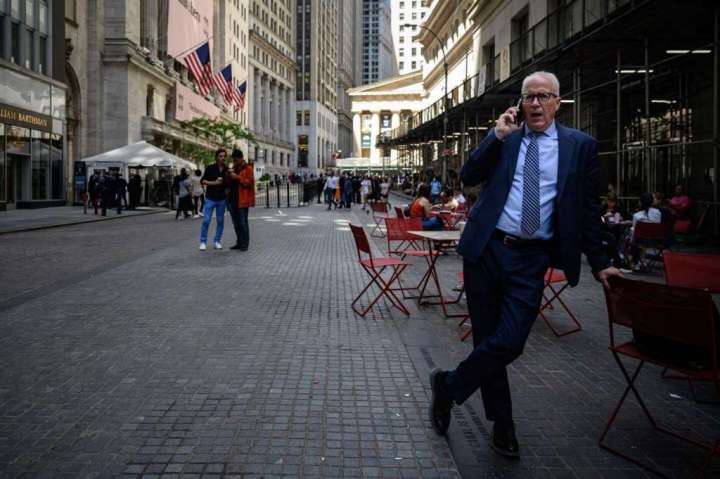The stock market isn’t predicting a recession.
We’re still not in a recession despite the stock market drop

But we need to put things in perspective.
As of Tuesday’s market close, the S&P 500 is down 22 percent from its peak on Jan. 3.
However, the S&P is still up 67 percent from its bottom on March 23, 2020, two months after the first confirmed coronavirus case in the United States and 10 days after President Donald Trump declared a national emergency, according to data from S&P Dow Jones Indices.
Even more significantly, the S&P is up 10 percent from what had been its all-time high, on Feb. 19, 2020.
This means that no matter how bad you feel, if you’ve had your money in the market continuously, you’re still better off now than you were at the 2020 peak. And I’m not even including the two years of dividends that you’ve gotten.
At the 2020 peak, people were bursting with confidence and wondering how much higher stocks would go and how much richer they would get. Then, a bit more than a month later as the country shut down, the S&P was down 34 percent, sending people into despair.
After which a combination of Federal Reserve rate cuts and federal government stimulus spending restored investor confidence and reduced the financial markets’ fear of the coronavirus, and everything turned around. The S&P rose a total of 18 percent in the three days after the March market bottom, and generally kept going up.
Early this year, stocks began to drift down slowly, and then began to plunge, begetting fear and panic and leading to dire predictions of what lies ahead.
If you’ve been around financial markets for a long time — I’ve been watching them for 40 years or so — you realize that in the long run, the market is rational. But in the short run, anything can happen — and often does.
Trying to find a rational reason for what the market is doing on a given day — or during a given hour — can lead you down a rabbit hole.
The vast majority of stock trading is based on algorithms — mathematical formulas — and consists of computers making massive trades with other computers.
The pattern seems to be that stocks keep going down because they’re going down, or they keep going up because they’re going up. Rationality? Forget about it. There’s no connection between the market’s daily moves and the real economy.
The computers aren’t thinking — they’re trading. Human beings try to divine reasons for the market movement, which make for interesting stories but not necessarily accurate ones.
How low will stocks go? Nobody knows.
And there’s absolutely no reason to think that a falling stock market is an accurate predictor of anything. As the late great economist Paul Samuelson once quipped in a 1966 Newsweek column, the stock market had predicted nine of the past five recessions.
By the way, a recession isn’t — as many people think — a decline in the U.S. gross domestic product (adjusted for inflation) for two consecutive quarters. Rather, a recession is a significant decline across the economy.
To quote the National Bureau of Economic Research, whose wonderfully named Business Cycle Dating Committee decides when a recession has begun or ended, “The NBER does not define a recession in terms of two consecutive quarters of decline in real GDP. Rather, a recession is a significant decline in economic activity spread across the economy, lasting more than a few months, normally visible in real GDP, real income, employment, industrial production, and wholesale-retail sales.”
The committee typically waits months — or sometimes a year or more — to declare that a recession has begun or ended.
I don’t know where either the stock market or the U.S. economy goes from here.






